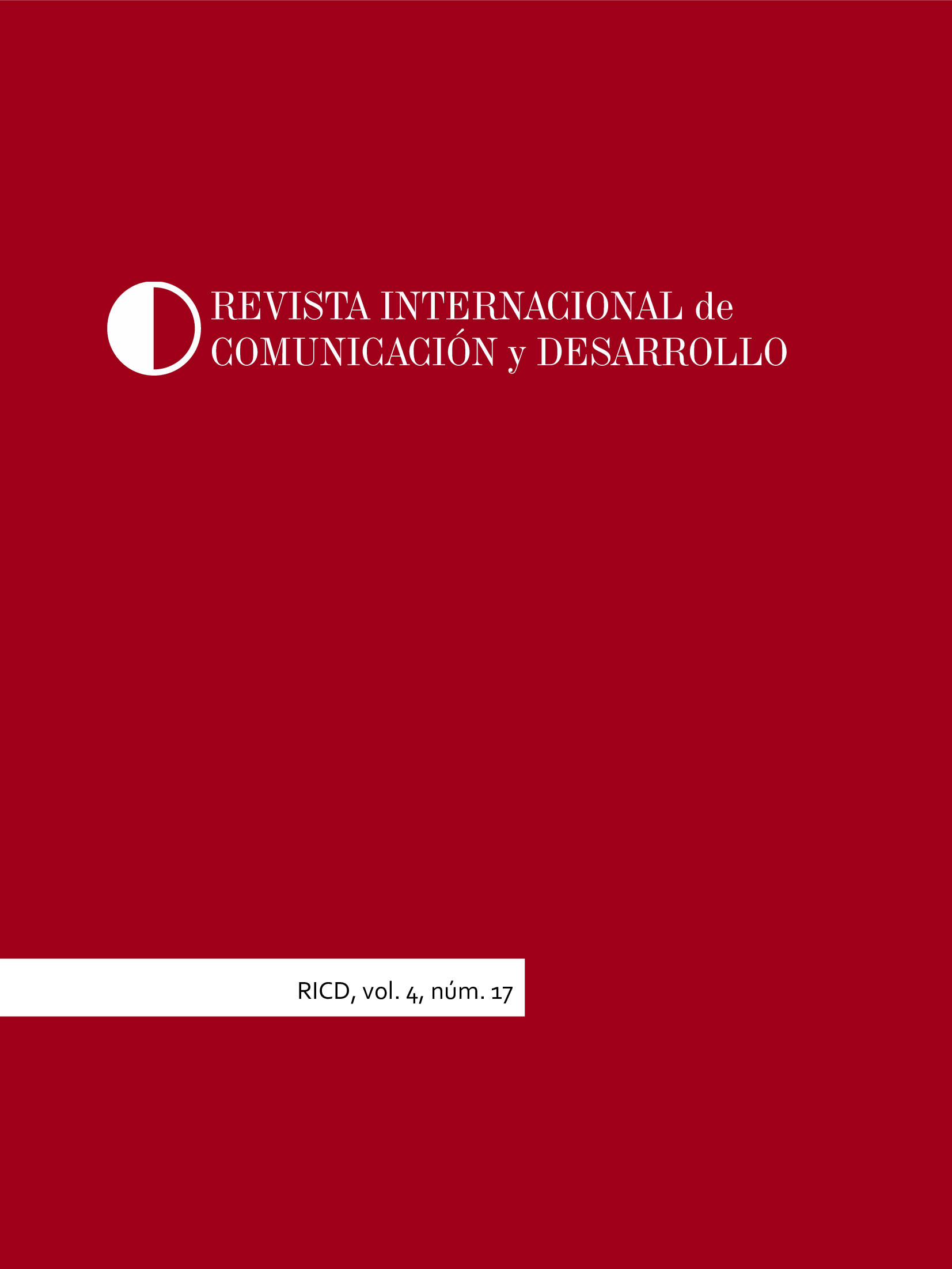The construction of hate speech against women by the participants in misogynistic spaces of a social network
Main Article Content
Abstract
This work aims to carry out an exploration of the manosphere through the analysis of the conversational threads of two profiles located in the social-digital network Facebook. It is divided into four parts: the first reconstructs and characterizes the manosphere as one of the most important spaces in the construction of misogyny. The second part defines hate speech and its manifestations in digital environments.
In the third part, the methodology and criteria for the selection of the sample are presented. The fourth part summarizes the main findings and, finally, the conclusions reflect on the findings, in the context of the growth of hate speech in socio-digital networks. It should be noted that Spain and Latin America have a presence in the manosphere, although not as intense and frequent as the groups selected as a result of six months of non-participant observation in five of them, all in English, in which mainly South American men participate. The Latin American groups -one Venezuelan and two more seeking the participation of men from the region- have little influence in the discussion, since the profiles go a long time without being visited and/or updated.
Keywords:
Article Details
References
Brown, A. (2015). Hate Speech in Law, Routledge. Taylor and Francis Group.
De Latour, A. (2017) We can! Taking action against hate speech through counter and alternative narratives, Council of Europe
Ebner, J. (2020). La vida secreta de los extremistas. Planeta.
Fitzgerald, K. (2020). Mapping the manosphere: a social network analysis of the manoshpere on Reddit. En: Master of Art in Security Studies, Naval Postgraduate School.
Ging, D. (2017). Alphas, Betas, and Incels: Theorizing the Masculinities of the Manosphere. En: Men and masculinities, 22 (4).
Gutiérrez, L. (2021). Breve ontología del simp. En Tierra Adentro https://www.tierraadentro.cultura.gob.mx/breve-ontologia-del-simp/.
Horta Ribeiro, M., Blackburn, J., Bradlyn, B., De Cristofaro, E., Stringhini, G., Long, S., Greenberg, S., & S. Zannettou. (2021). The Evolution of the Manosphere across the Web Proceedings of the International AAAI Conference on Web and Social Media,15(1), 196-207. Retrieved from https://ojs.aaai.org/index.php/ICWSM/article/view/18053.
Ironwood, I. (2012). The manosphere: a new hope for masculinity. Kindle edition.
Jones, R., Chik, A. & C. Hafner, C. (2015). Discourse and digital practices. Routledge.
Kaiser, S. & V. Pakis. (2022). Political masculinity. Polity Press.
King, B. (2015). Investigating digital sex talk practices. Jones, R., Chik, A. y Hafner, C. (2015) Discourse and digital practices. Routledge, p. 200-218.
Krendel, A. (2022). Analysing the linguistic features of the manosphere as hate speech. Lancaster University.
Levy, S. (2021). Facebook. Penguin Random House.
Marwick, A. & R. Kaplan. (2018). Drinking male tears: language, the manosphere, and networked harassment. Feminist Media Studies. 18:4, 543-559.
Monea, A. (2022). The digital closet. Massachusetts Institute of Technology.
Papacharissi, Z. (2018). A networked self and platforms, stories, connections 2018, Routledge.
Poell, T., Rajagopalan, S. & A. Kavada. (2018). Tracing the mutual articulation of platform architectures and user practices. En Papacharissi, Z. (ed.) A networked self and platforms, stories, connections, p. 109-142.
Radzuwan AB, R., Yunus, K. & Z. Wahab. (2018). Supportive conversations on Facebook timelines. Routledge
Ruocco, J. (2020). Cómo la extrema derecha se apoderó de 4 chan. Nueva Sociedad. https://nuso.org/articulo/como-la-extrema-derecha-se-apodero-de-4chan/.
Sponholz, L. (2022). Hate speech and deliberation: overcoming the words that wound trap. En Pérez, M. & J. Noguera-Vivó. (eds.) Hate speech and polarization in Participatory Society. Routledge, Taylor and Francis Group, p. 122-152.
Sugiura, L. (2021). The Incel Rebellion: the rise of the manosphere and the virtual war against women. Emerald Publishing.
Sunstein, C. (2010). Rumorología. Debate.
Sunstein, C. (2021). Liars. Oxford University Press.
Xiaoting H. & Chenjun Y. (2022). Mapping the manosphere. Categorization of reactionary masculinity discourses in digital environment. Feminist Media Studies.
Vaidhyanathan, S. (2021). Antisocial media. Oxford University Press.
Wahl-Jorgensen, K. (2018). The emotional architecture of social media. En Papacharissi, Z. (ed.) A networked self and platforms, stories, connections. p. 183-218.







